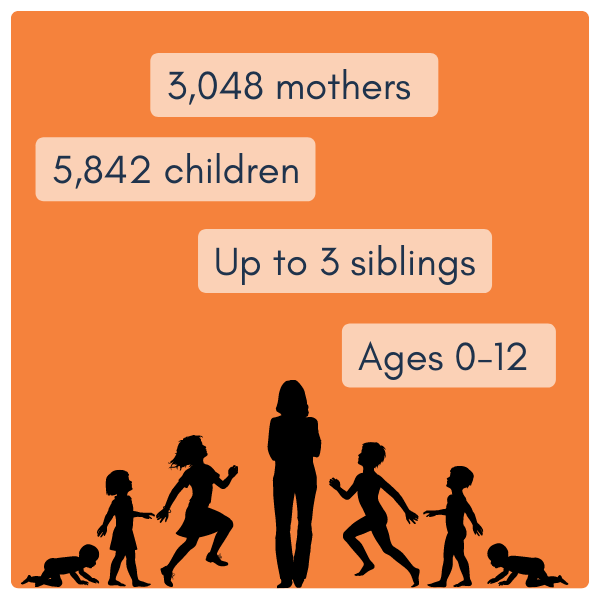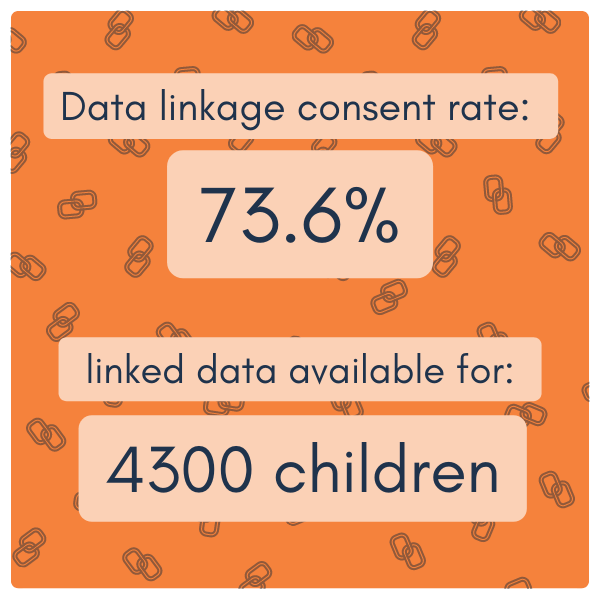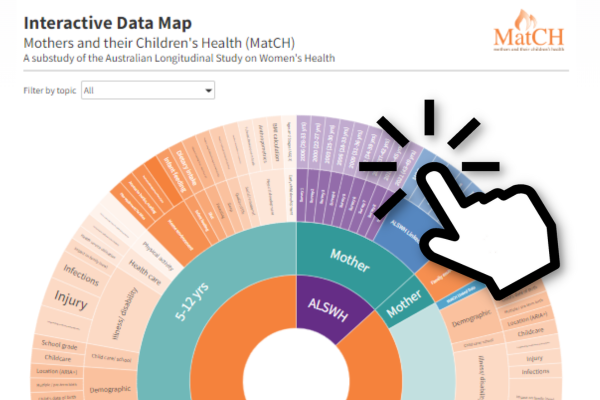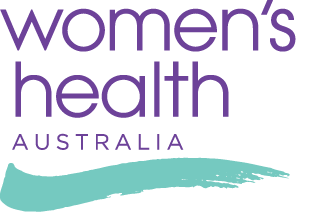Data share: Mothers and their Children's Health study
The Australian Longitudinal Study on Women’s Health is pleased to announce that data from the Mothers’ and their Children’s Health (MatCH) substudy is now available free of charge to approved researchers.
The MatCH substudy investigates the intergenerational determinants of child health and development. It combines over 25 years of longitudinal data on mothers from ALSWH’s 1973-78 cohort with data on up to three of their children aged under 13.
This data share presents a unique opportunity for researchers interested in:
– Maternal preconception health and child outcomes
– Life course determinants of child health and development
– The impact of family and environmental factors on child outcomes
– Sibling analyses

MatCH survey data
In 2016, mothers from the ALSWH 1973-78 cohort were invited to complete the MatCH survey about their three youngest birth children aged under 13 years.
Survey measures included diet and physical activity, screen time, health-related quality of life, illness and disability, health service use, sleep, social and emotional development, physical development, and anthropometric measures.

MatCH linked data
Survey data from MatCH are complemented by linked administrative data collections. These include children’s educational records through the Australian Early Development Census (AEDC) and NAPLAN. Linked maternal data is also available from the Pharmaceutical Benefits Scheme (PBS) and Medical Benefits Schedule (MBS), other national collections, and State-based Perinatal, Hospital Admissions, and Emergency Department Data collections.

Applying for MatCH data
MatCH data are made available to approved researchers via the ALSWH expression of interest process. There is no charge for data requests. However, if your project involves linked data (and you are not based in Brisbane or Newcastle), you should budget for travel or remote access fees. The use of linked state and national administrative data sets is strictly regulated, and there are time and access constraints.
![]() Read more about the Mothers and their Children’s Health substudy
Read more about the Mothers and their Children’s Health substudy
![]() Read more about applying for data from ALSWH
Read more about applying for data from ALSWH
![]() Read more about applying for linked data
Read more about applying for linked data
Acknowledgements
MatCH data collection was funded by the National Health and Medical Research Council 2014 – 2019 under NHMRC Project grant APP105950. Our thanks to the MatCH Investigators: Prof Gita Mishra, Prof Peter Davies, Prof Annette Dobson, Prof Virginia Slaughter, Prof Deb Loxton, Prof Kylie Hesketh, A/Professors Leigh Tooth, Prof Ilona Koupil (Grünberger), Prof Carol Bower, Prof Peter Sly
MatCH is a substudy of the Australian Longitudinal Study on Women’s Health (ALSWH), conducted by the University of Queensland and the University of Newcastle. We are grateful to the Australian Government Department of Health and Aged Care for funding ALSWH; the National Health and Medical Research Council for funding the Mothers and their Children’s Health (MatCH) Substudy; and to the women who provided the data.
NAPLAN data was provided by the ACT Education Directorate, the NSW Education Standards Authority, the NT Department of Education, the Queensland Curriculum and Assessment Authority, the SA Department for Education, the Tasmanian Department of Education, the Victorian Curriculum and Assessment Authority, and the WA School Curriculum and Standards Authority. These authorities were not associated with, and do not endorse the analysis, comments or findings in this publication. The Australian Institute of Health and Welfare provided data linkage services for NSW NAPLAN data for this project.

